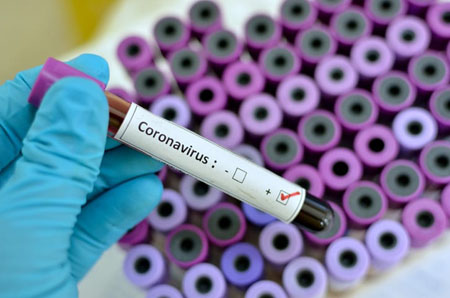by WorldTribune Staff, October 7, 2020
Keeping the current coronavirus lockdown measures in place until a vaccine is available “will cause irreparable damage, with the underprivileged disproportionately harmed,” according to three top epidemiologists.
Those who are at minimal risk should return to normal life immediately while protecting the vulnerable should be the top public health aim, Dr. Sunetra Gupta, Dr. Jay Bhattacharya, and Dr. Martin Kulldorff said in an Oct. 4 interview with UnHerd.com.
 “As infectious disease epidemiologists and public health scientists we have grave concerns about the damaging physical, and mental health impacts of the prevailing COVID-19 policies and recommend an approach we call Focused Protection,” the doctors said.
“As infectious disease epidemiologists and public health scientists we have grave concerns about the damaging physical, and mental health impacts of the prevailing COVID-19 policies and recommend an approach we call Focused Protection,” the doctors said.
The lockdown policies currently in place “are producing devastating effects on short and long-term public health. The results (to name a few) include lower childhood vaccination rates, worsening cardiovascular disease outcomes, fewer cancer screenings and deteriorating mental health – leading to greater excess mortality in years to come, with the working class and younger members of society carrying the heaviest burden. Keeping students out of school is a grave injustice.”
The doctors pointed out that vulnerability to death from coronavirus is more than a thousand-fold higher in the old and infirm than the young. For children, covid is less dangerous than many other harms, including influenza, they said.
“As immunity builds in the population, the risk of infection to all – including the vulnerable – falls,” the doctors said. “We know that all populations will eventually reach herd immunity – i.e. the point at which the rate of new infections is stable – and that this can be assisted by (but is not dependent upon) a vaccine. Our goal should therefore be to minimize mortality and social harm until we reach herd immunity.”
“Focused Protection” is “the most compassionate approach” to the virus, the doctors said. It “balances the risks and benefits of reaching herd immunity, is to allow those who are at minimal risk of death to live their lives normally to build up immunity to the virus through natural infection, while better protecting those who are at highest risk.”
As for protecting the vulnerable, the doctors say nursing homes “should use staff with acquired immunity and perform frequent PCR testing of other staff and all visitors. Staff rotation should be minimized. Retired people living at home should have groceries and other essentials delivered to their home. When possible, they should meet family members outside rather than inside. A comprehensive and detailed list of measures, including approaches to multi-generational households, can be implemented, and is well within the scope and capability of public health professionals.”
As for those who are not vulnerable, the doctors say they “should immediately be allowed to resume life as normal. Simple hygiene measures, such as hand washing and staying home when sick should be practiced by everyone to reduce the herd immunity threshold. Schools and universities should be open for in-person teaching. Extracurricular activities, such as sports, should be resumed. Young low-risk adults should work normally, rather than from home. Restaurants and other businesses should open. Arts, music, sport and other cultural activities should resume.”
Dr. Sunetra Gupta is a professor at Oxford University, an epidemiologist with expertise in immunology, vaccine development, and mathematical modelling of infectious diseases.
Dr. Jay Bhattacharya is a professor at Stanford University Medical School, a physician, epidemiologist, health economist, and public health policy expert focusing on infectious diseases and vulnerable populations.
Dr. Martin Kulldorff is a Professor of medicine at Harvard University, a biostatistician, and epidemiologist with expertise in detecting and monitoring of infectious disease outbreaks and vaccine safety evaluations.
Intelligence Brief __________ Replace The Media
